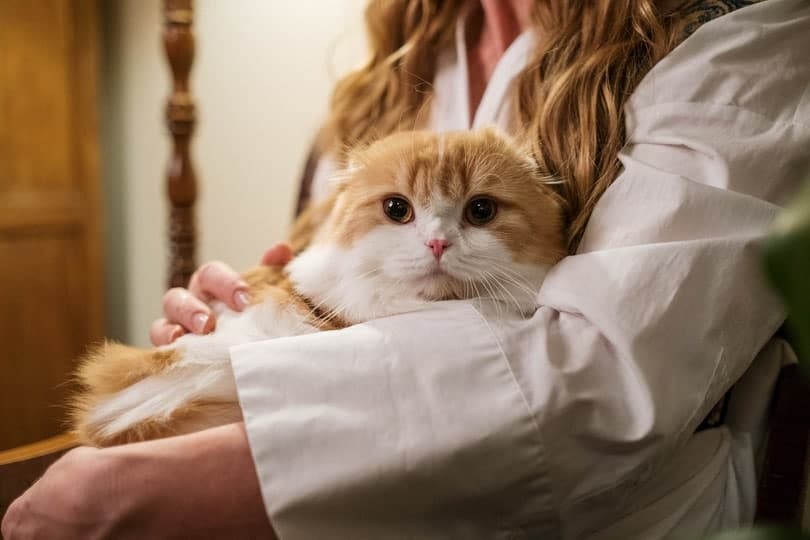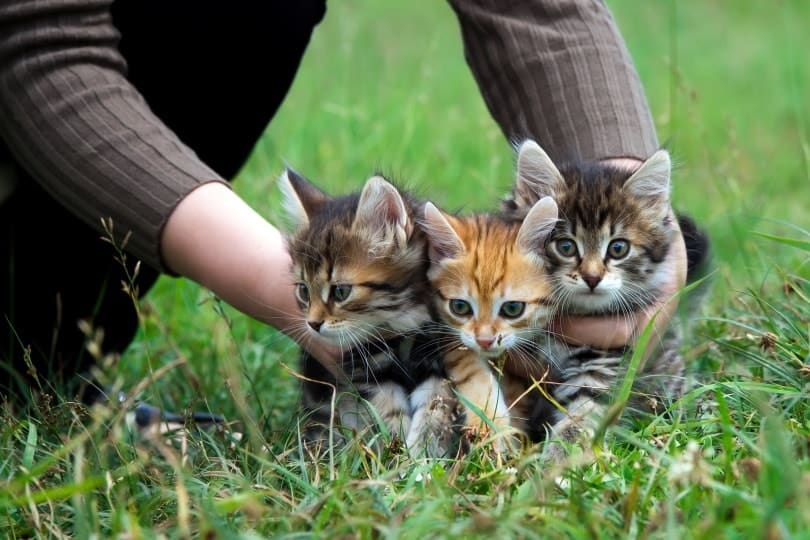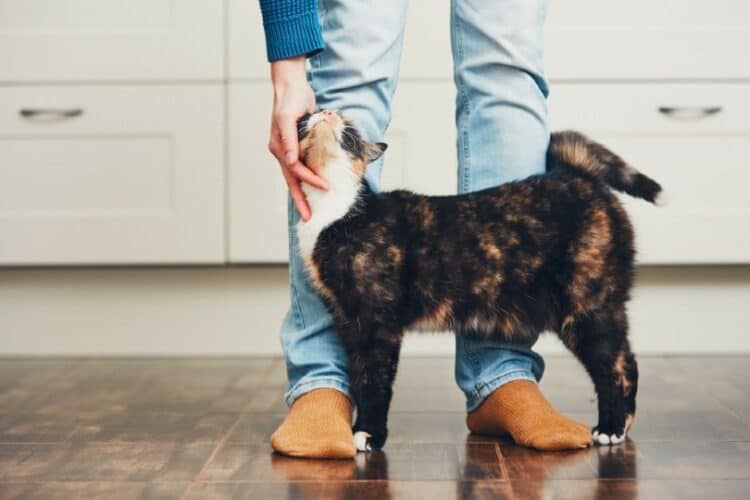Female cats have a reputation for being more bossy or independent than male cats, while male cats are seen as more laidback and doting. Researchers have also completed some studies that support the idea that males are naturally more affectionate than females. This belief causes many people to prefer bringing home male cats over females.
The sex of the cat may affect the cat’s level of affection, but there are other factors that play a strong role in a cat’s overall personality and temperament. So, instead of choosing a cat based on its sex, it’s important to have a more holistic approach when searching for an affectionate cat.
Are Male Cats More Affectionate?
Naturally, male cats tend to be more affectionate and willing to form strong bonds with humans and other animals. Female cats are often more standoffish and prefer to do their own thing.
However, these preferences can change if cats get spayed or neutered. While neutered males may still be playful, they tend to become less territorial and are less likely to make escape attempts to find a mate.
Spayed females may become less vocal because they won’t need to attract a mate. However, many still have maternal instincts. Some may direct this loyal behavior towards their owners and develop strong attachments to their favorite people.
Keep in mind that spaying and neutering cats is recommended. While these procedures may alter some behaviors in cats, they don’t dramatically alter the personality of the cat. They can actually help reduce some unwanted behaviors associated with mating and the breeding season, such as urine marking, escaping the home, and aggression.

Other Factors That Impact a Cat’s Affection
While a cat’s sex may play a role in the way it shows affection, there are other things that can affect how it expresses how it’s feeling.
Breed
Cat breeds are often bred for consistent temperaments. For example, Maine Coons are known for their gentle demeanor and intelligence, while Cornish Rexes are known to be goofier and more playful.
Some cat breeds are known to be more people-oriented and enjoy cuddling and regularly interacting with their humans:
- American Shorthair
- Birman
- Bombay
- Maine Coon
- Ragamuffin
- Ragdoll
- Scottish Fold
- Siamese
- Sphynx
These cat breeds are known to be more independent and are content with having a lot of alone time:
- British Shorthair
- Javanese
- Himalayan
- Manx
- Norwegian Forest Cat
- Ocicat
- Persian
- Russian Blue
- Somali
Just remember that a cat’s breed should be treated as a predictor of the cat’s temperament and personality, rather than a definitive factor. Cats of the same breed can act completely differently from each other because there are other significant things that affect their personality.
Early Socialization
Early socialization plays a key role in the way cats treat humans and other animals. When kittens are socialized, it helps them to become less timid, anxious, and aggressive because they’re incrementally exposed to different stimuli.
One of the best ways to socialize your kitten is to introduce it to new people and situations at levels that aren’t too stressful for them. Cats that go through successful early socialization can be more confident and enjoy human company and interaction.
While older cats can still learn to be socialized, it’s much easier to work with kittens. So, early socialization is a great tool that helps set up kittens for success.

Environment
Cats need to feel comfortable and safe in their homes. They can feel secure when they consistently have access to food and water, clean litter boxes, and plenty of spaces where they can hide and rest.
Cats are also very attentive and observant, so they’ll also be watching your behavior to determine how trustworthy you are. The cat’s comfort level in its home and its trust in you can affect how it expresses affection.
Individual Personality
A study known as the Feline Five was completed by researchers who were keen on understanding cat personality traits. This study was modeled after the Five-Factor Model, which is used to describe human personality.
The Feline Five lists five factors that make up a cat’s individual personality:
- Openness to experience
- Conscientiousness
- Extraversion
- Agreeableness
- Neuroticism
These factors can also play a role in how cats may display affection. For example, cats that score high in agreeableness may be more upfront about how they show that they like you.
Wrap Up
A male cat may have a tendency to show more affection, but a cat’s sex isn’t a factor that guarantees how cats show affection. There are many other things, such as environment and early socialization, that affect how friendly a cat is towards people.
All cats will show affection, but how it’s expressed will differ from cat to cat. Some cats show affection by snuggling and actively seeking attention. Other cats will prefer to stay close to their humans while maintaining some space in between.
One of the best ways to feel affection from your cat is to understand your cat’s behavior and notice how they express affection in their own unique way. Nothing guarantees how your cat will show that it likes you. However, providing a safe and fun environment and accepting your cat’s natural personality will make your cat appreciate you. You just have to look for the special ways it’s showing you its affection.
Featured Image Credit: Shutterstock














